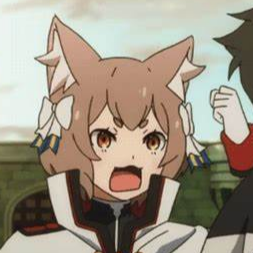The T-34 was conceived as a universal medium tank to succeed the T-26 and BT light tanks after combat experience at Lake Khasan and Khalkhin Gol. The initial production T-34/76 was fielded in fairly small numbers at the start of Operation Barbarossa and despite the poor build quality and inexperienced Soviet command, the tank proved troublesome for the Germans to deal with. The sloped armor plates could effectively withstand shots from contemporary German tanks and it was practically immune to the German 37mm anti-tank guns (which Germans deridingly nicknamed the “tank door knocker"). Its 76 mm gun was more powerful than any of the main guns found on equivalent German tanks.
Despite its powerful gun and effective armour. The T-34/76 suffered from many design faults. The Christie suspension system and wide tracks theoretically gave it good cross country performance, but it still had issues dealing with muddy terrain. The overall poor mechanical reliability hindered the tank’s potential mobility and contributed to high field losses. The Christie suspension system also took up a lot of interior space and in combination with the sloped armour, the tank was very cramped and uncomfortable for its crew. The two person turret required the tank commander to operate the gun (normally done by a dedicated gunner) which inhibited their ability to effectively command the tank during battle and limited the gun's effective rate of fire. The lack of a turret ammo basket made the gun loader job more difficult and the gun sights were of also of low quality, further reducing the gun’s effectiveness. The turret lacked a commander’s cupola, which impaired visibility of the battlefield. Radio systems were either unreliable or non-existant which made communication difficult.
Although these issues were brought up, the Soviets prioritized improving production line efficiency over fixing design problems and thus iterative improvements over the T-34/76 were focused on lowering production costs. What the tank lacked in quality it would make up for in sheer quantity.
The T-34 was planned to be succeeded by the T-43 medium tank, which addressed many of the design flaws of the original T-34. However, the production line changes needed for the new tank would greatly reduce tank production and the plan was ultimately rejected. The T-34/85 was developed instead, taking features developed for the T-43 whilst sharing the same chassis as the T-34/76. This allowed for some design improvements without severely impacting production.
The T-34/85 differed from the T-34/76 in a few key areas. The turret was made larger to accommodate three personnel, allowing for a dedicated gunner and thus enabling the commander focus on commanding the tank. A proper cupola was also installed to give the commander better visibility. The larger turret would accommodate the more powerful 85 mm gun that could effectively fight the late war German tanks. A more powerful engine was installed to compensate for the tank’s heavier weight.
The T-34 would also form the basis of the SU series of assault guns, providing a low cost but powerful infantry support platform. Production did continue postwar, albeit in much more limited numbers. In all, over 80,000 T-34’s (of all variants) and over 10,000 SU assault guns were produced, making it the second most produced tank. It would be ultimately succeeded by the T-54/T-55 series, which would become the most produced tanks in history.
The T-34’s were exported to many nations and it saw action in many of the postwar conflicts, including but not limited to: the Chinese Civil War, the Korean War, the Arab-Israeli wars, the Vietnam War, the Angolan Civil War, and the Soviet-Afghan War. A handful of T-34’s are still kept as reserve forces or as training vehicles, most notably in North Korea, Cuba and Vietnam.
Tankies will defend this :meow-tankie:
https://hexbear.net/post/158599 check out this mega about a fellow comrades new game they made themselves and give it support
Resources for Organizing your workplace/community :sabo:
Resources for Palestine :palestine-heart:
Buy coffee and learn more about the Zapatistas in Chiapas here :EZLN:
Here are some resourses on Prison Abolition :brick-police:
Foundations of Leninism :USSR:
:lenin-shining: :unity: :kropotkin-shining:
Anarchism and Other Essays :ancom:
Remember, sort by new you :LIB:
Follow the Hexbear twitter account :comrade-birdie:
THEORY; it’s good for what ails you (all kinds of tendencies inside!) :RIchard-D-Wolff:
Come listen to music with your fellow Hexbears in Cy.tube :og-hex-bear:
Queer stuff? Come talk in the Queer version of the megathread ! :sicko-queer:
Monthly Neurodiverse Megathread and Monthly ND Venting Thread :Care-Comrade:
Join the fresh and beautiful batch of new comms:
!worldbuilding@hexbear.net :european-soviet:
!labour@hexbear.net :iww:
!cars@hexbear.net :cringe:


I'll say that I like Final Fantasy 9, since I think that got a recent re-release or some shit on switch. It's been a while since I've played it, but I remember the characters being pretty great and the pacing being pretty stand-out. The gameplay I remember dominating by learning haste with all the beefy characters so that I could hit roughly nine times for every one hit the enemy got and do crazy damage each hit to just batter everything to death.
If you play it, I will say to you: engage with the card game. Do it.
spoiler
If you do what I did and sell all the cards you get and refuse to engage with it the whole game, you will be stuck for a while when you are expected to get to a certain point in a card tournament to advance the story.